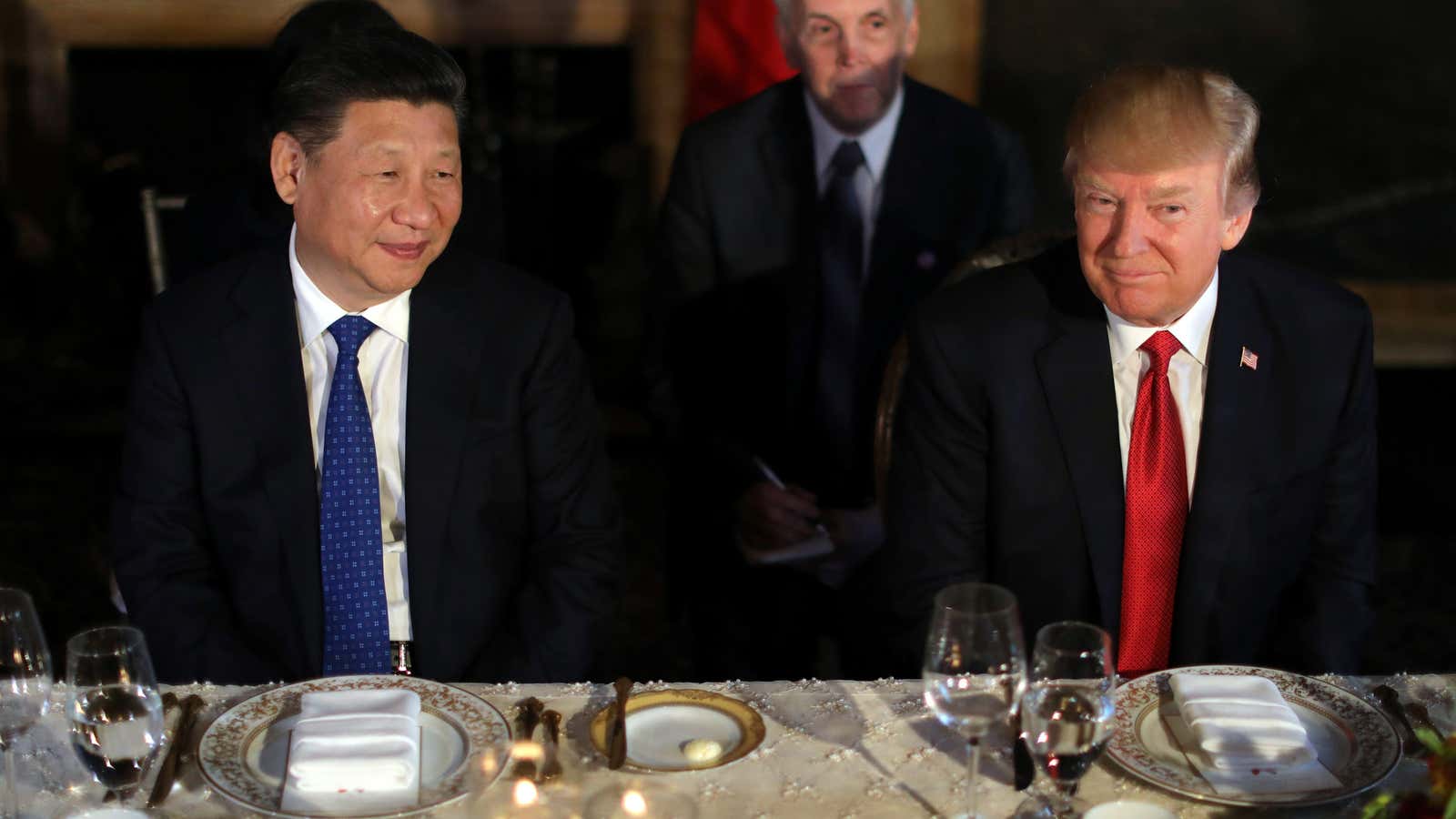US president Donald Trump welcomed Chinese president Xi Jinping and his wife to his private club in Florida on Thursday evening, and then announced he had bombed Syria, one of China’s allies.
The move, which included launching dozens of missiles at Syrian airfields, was a stark reversal for Trump, who had long endorsed a policy of non-intervention without Congressional approval when his predecessor Barack Obama was president. It may have been a massive surprise for Xi as well—China, along with Russia, voted against sanctioning Syria in the United Nations in February this year, and the meeting between Xi and Trump was billed by the US as an uneventful meet-and-greet session beforehand.
“Tonight I ordered a targeted military strike on the airfield in Syria from where the chemical attack was launched,” Trump said at Mar-a-Lago, about an hour after Xi and his wife had left in their motorcade for another seaside hotel.
In February, the United Nations’ Security Council voted against putting sanctions on Syria over the alleged use of chemical weapons by the regime of Syrian president Bashar al-Assad. China has vetoed Syria-related action at the UN several times, along with Russia. Amnesty International said in February that Russia and China’s latest vetoes “have displayed a callous disregard for the lives of millions of Syrians.” On Thursday, inconclusive discussions had been underway among Security Council members on a resolution condemning the chemical attack.
In March, Syria’s president said in an interview with a Chinese television channel that relations with China were on the upswing, calling the country “a real friend.” China’s foreign ministry has been circumspect about the fighting raging in Syria, and comments are usually confined to hoping the Syrian government and the opposition build “mutual trust.”
After the attacks, China’s foreign ministry spokesman said China opposed the “use of force.” The AFP tweeted that Trump had personally notified Xi about the attacks over dinner, but an article with the same information was deleted from the news agency’s website.
Bonnie Glaser, director of the China Power Project at the Washingon-based think tank Center for Strategic and International Studies, said that the military action could send a message to China.
“China’s president cannot but conclude that Trump is a US president who is decisive and willing to use American power, including military power,” she said, adding that in relation to future tensions that could arise in the Taiwan Strait or South China Sea, “China could be deterred from using force.”
The bombing during the very public meeting with Xi could also disturb relations between the two nations. As China experts in the US government noted earlier, the last thing that Xi would want during such a meeting is a surprise. In addition, the second day of talks on Friday will likely be overshadowed by US lawmakers and journalists seeking more clarity on the administration’s plans for Syria.
Willy Lam, who researches Chinese politics at the Chinese University of Hong Kong, says that Beijing will be somewhat dismayed that the summit will play “second fiddle” to Syria in international media coverage.
Making matters worse, the US has said it had notified Russia before the bombing, according a statement from the Pentagon, but it is not yet clear when Xi was made aware of the action.
In remarks in Florida after the military action was announced, Secretary of State Rex Tillerson praised Trump. “This clearly indicates the president is willing to take decisive action when called for,” he said.
Echo Huang contributed to this article.
This article was updated April 7 at 9:20am EDT with China’s reaction and a report that Xi had been notified of the attacks.
